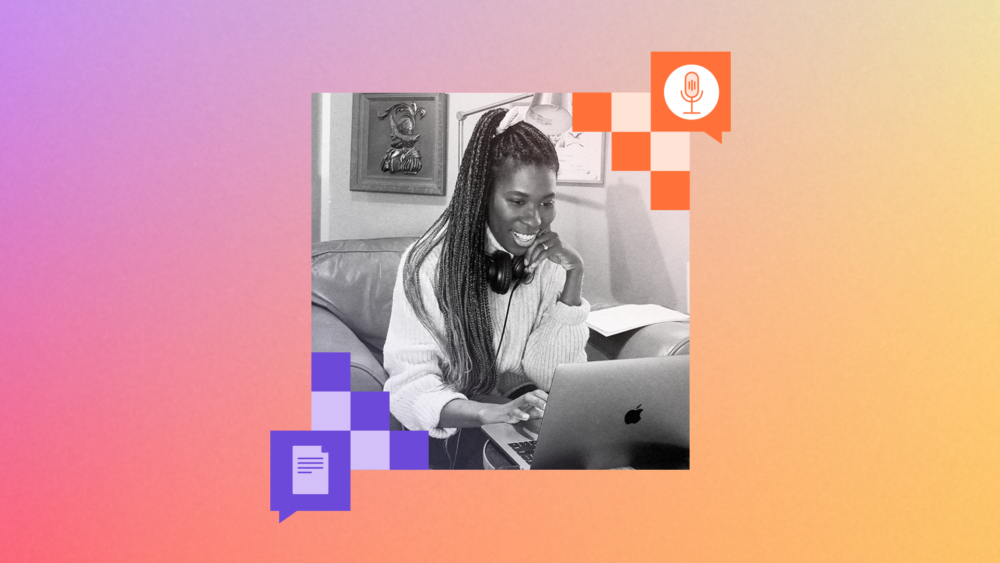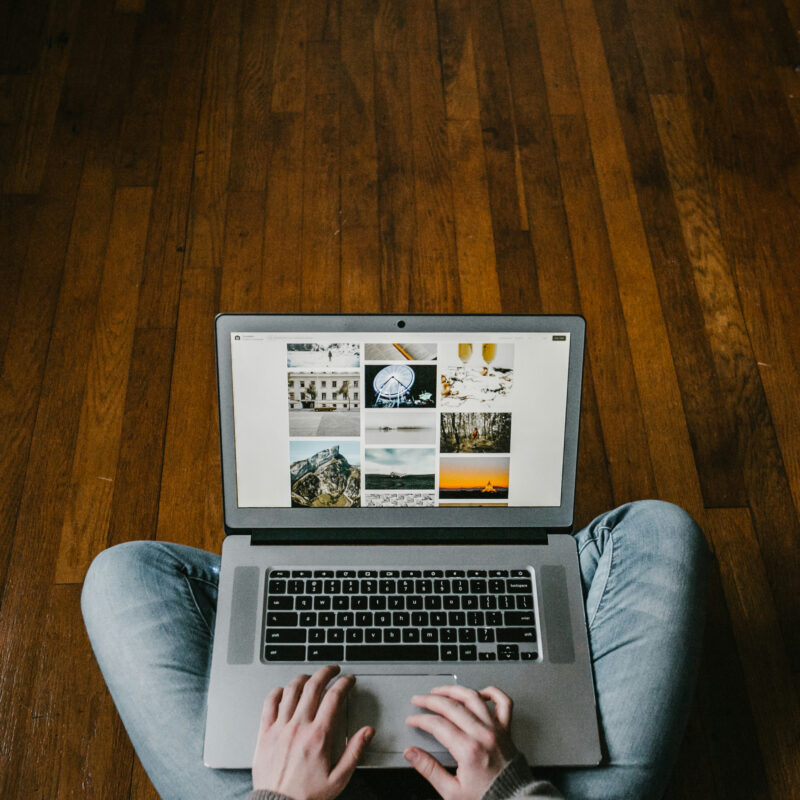
Bridget Todd, the new host of Mozilla’s IRL podcast, on online communities, The X-Files & raising marginalized voices
Here at Mozilla, we are the first to admit the internet isn’t perfect, but we are also quick to point out that the internet is pretty darn magical. The internet opens up doors and opportunities, allows for people to connect with others, and lets everyone find where they belong — their corners of the internet. We all have an internet story worth sharing. In My Corner of the Internet, we talk with people about the online spaces they can’t get enough of, what we should save in Pocket to read later and what sites and forums shaped them.
This month we are announcing the latest season of Mozilla’s podcast, IRL, and its new host, Bridget Todd. Mozilla’s podcast, IRL, is launching Monday, July 18th anywhere you listen to podcasts. We sit down with her to talk about the podcast, how The X-Files AIM chat rooms helped her fall in love with the internet, and how the internet needs to become messy again in this month’s edition of My Corner of the Internet.
What is an internet deep dive that you can’t wait to jump back into?
This is a little bit of a specific answer, but the podcast Dead Eyes. I’m just really obsessed with this story of why Tom Hanks thought this guy had dead eyes. Every little twist and turn, I get stuck on, like Tom Hanks apologizing for getting him fired. It’s one of those stories that shows one of my favorite things about the Internet, how people can revisit and reclaim their experiences in a new light. I think as strange as that story is or how sort of like silly it is initiatives, I think it does reflect how the Internet can play this role in our lives that really empowers us to like rethink our experiences and see them with new, fresh eyes and process them in a different way.
What is the one tab you always regret closing?
I always have too many tabs open — at any given time I have like 40 open. It’s the kind of thing, where you know when you have so many open that you can’t even see them. So, whenever, I accidentally close a tab, I tell myself, you know, maybe you weren’t going to read that long article in The Atlantic, anyway, or like maybe you weren’t actually going to apply for that fellowship and it’s good that the link is no longer just up there. Every time I accidentally close the tab I feel like it’s the universe telling me that it wasn’t meant to be and you’re free now.
What can you not stop talking about on the internet right now?
I cannot stop talking about all of the ways that people have been historically and traditionally sidelined and marginalized, in general, but also, particularly in conversations centered around technology and the Internet. Yet despite all those ways, we’re still taking up space online, creating conversations online, and building monuments to our experiences using technology. It’s been amazing to cover these stories, on my own technology podcast There Are No Girls On The Internet on iHeartRadio and I’m super excited to do more of that with [the re-launch of Mozilla’s podcast] IRL.
I’m also really proud of the work I am doing with UltraViolet — we’re working to build an internet that is more hospitable for women, queer folks, trans people, people of color and other people who are traditionally marginalized.
What was the first online community you engaged with?
I’m almost embarrassed to say but The X Files chat rooms on America Online. because I really liked The X Files growing up, and I still do. I had a lot of questions about The X Files — what was happening and what was the truth. I also just like really enjoyed talking about Dana Scully, she’s my favorite character on TV. I didn’t really have a lot of people to talk to about this — I was watching The X Files pretty much alone in my house — and so the Internet really gave me this way to talk about it. When I first discovered chat rooms on the good old-fashioned America Online, that was really when my love of the Internet took off. So, definitely, The X Files-related AOL chat rooms.
What stories are you most excited to tell with the latest season of IRL coming out this July?
The ones I’m the most excited to talk about are honestly, the stories where tech workers have blown the whistle — stories where they’ve said I’m working on technology that is not good, it’s not safe and I’m not going to do it. I think we forget that oftentimes it’s the rank and file employees at big tech companies who are really putting themselves at great risk to make change by letting the general public in on what’s happening at some of these companies. Those stories, for whatever reason, are stories that really moved me because I feel they take so much courage. It takes so much gumption and personal values to do that kind of thing. Those are the stories that really resonate with me and I’m super excited to chronicle on IRL this season.
What articles and videos are in your Pocket waiting to be read/watched right now?
An article called on The Daily Beast called, Why Does Hollywood Keep Failing Maya Rudolph? I really love the actress Maya Rudolph and it’s about her new show, called Loot, which I have not watched yet.
I’m really into pop culture and the intersection of pop culture and race and gender and identity so that’s definitely one that’s been in my pocket. More recently I saved this article that just came out on Wired titled Are You Ready To Be Surveilled Like A Sex Worker? It’s all about FOSTA/SESTA laws and the de-platforming of sex workers in relation to Roe V Wade being overturned. I’m kind of high and low on that, like up and down, escapism and reality, but those are the two that stand out to me.
If you could create your own corner of the internet what would it look like?
My corner of the Internet would be delightfully weird, I yearn to go back to the days, when Instagram was just really unappetizing looking pictures of your lunch and blurry pictures. Back in the day, we would go out to a nightclub and you would bring your digital camera and would take 50 pictures like ‘Oh, these are my friends from this angle from that angle” and then you would upload all of them to Facebook as if somebody wanted to click through every picture.
I miss those days when internet spaces were not curated, there was no expectation that you had to show up in a certain kind of way to get engagement. It felt like oddballs just trying stuff out. If I was in charge of the Internet, it would be a lot weirder, it would be a lot less pretty, a lot less curated and a lot less polished. When we post a picture today we think of all these different things. Back then, I would post photos and I was uglier, I was sweatier, I was less polished but I was free and having much more fun.
I think my corner of the internet would be a lot more authentic and a lot more true to who we are and what we’re trying to say when we put ourselves out there.
Bridget Todd is a frequently cited expert, trainer, and speaker on combating disinformation and extremism online, advocating for social media platform accountability, creating safer digital experiences for women and other marginalized people, and celebrating and amplifying marginalized people’s contributions to tech and the internet.
She created her critically acclaimed podcast. There Are No Girls on the Internet to explore how marginalized people show up online in response to the lack of inclusion in conversations around the internet.
As Director of Communication for the national gender-justice advocacy organization UltraViolet, Bridget regularly meets with leadership from platforms like Reddit, Twitter, Facebook and TikTok to advocate for and develop policy recommendations to make digital experiences safer and more inclusive. Bridget’s writing and work on technology, race, gender, and culture have been featured in The Atlantic, Newsweek, The Nation, The Daily Show and several other outlets.


